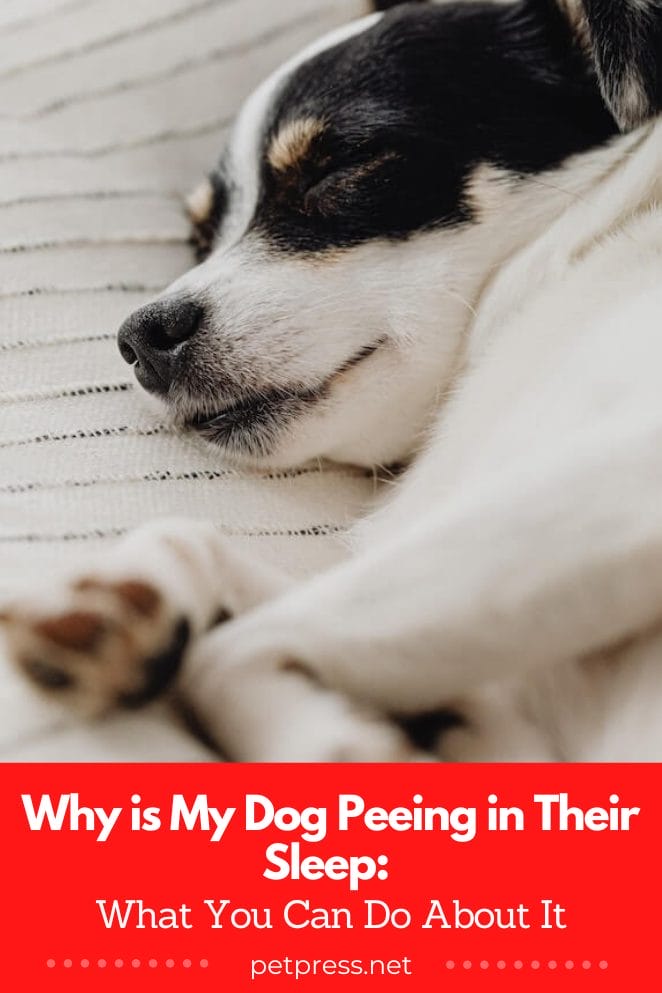
We all know that dogs have to go to the bathroom all time throughout the day.
But what about when they’re asleep? You must have asked yourself, why is my dog peeing in their sleep? Do they still have to go?
The answer is yes! Dogs often dream about running and playing, and during these dreams, their muscles may twitch or move. This can sometimes trigger the need to urinate or defecate.
This may cause them to pee on the bed too.
So if you see your dog sleeping and twitching, don’t be alarmed – it’s just nature taking its course!
Petpress addresses this issue and brings to you the possible explanation and solution behind this behavior in dogs.
Here are five possible reasons why your dog is peeing in their sleep:
1. Medical Condition: Diabetes or Urinary Incontinence
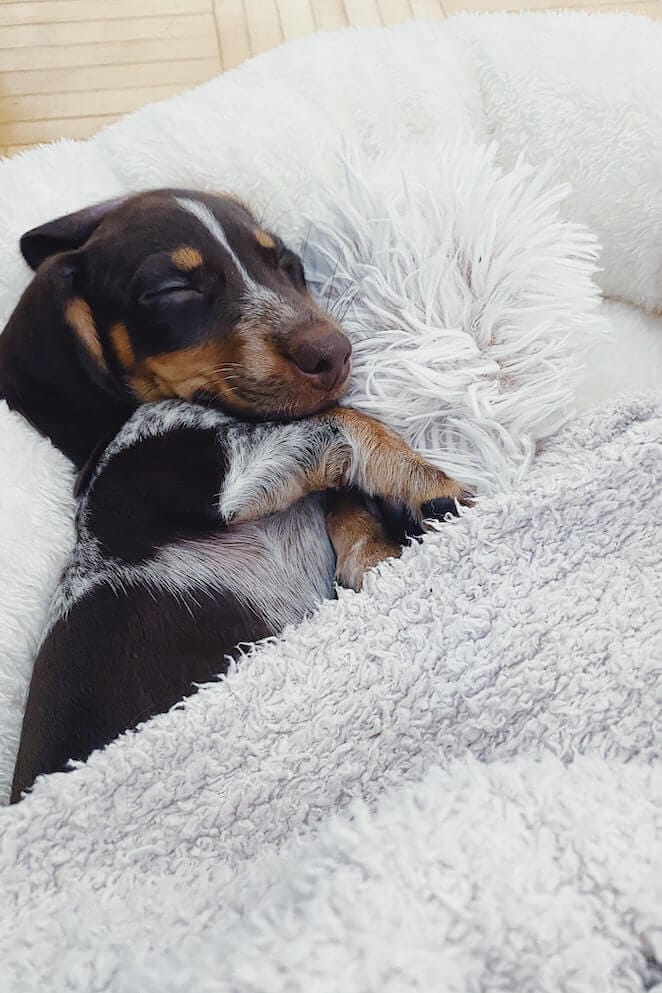
If your dog has diabetes, their body is unable to process sugar properly.
This can lead to excessive urination, which can happen during the day or at night.
If your dog has urinary incontinence, they may leak urine while sleeping due to weak bladder muscles.
These are both medical conditions that will need to be treated by your veterinarian.
2. Behavioral Issue: Excitement Urination
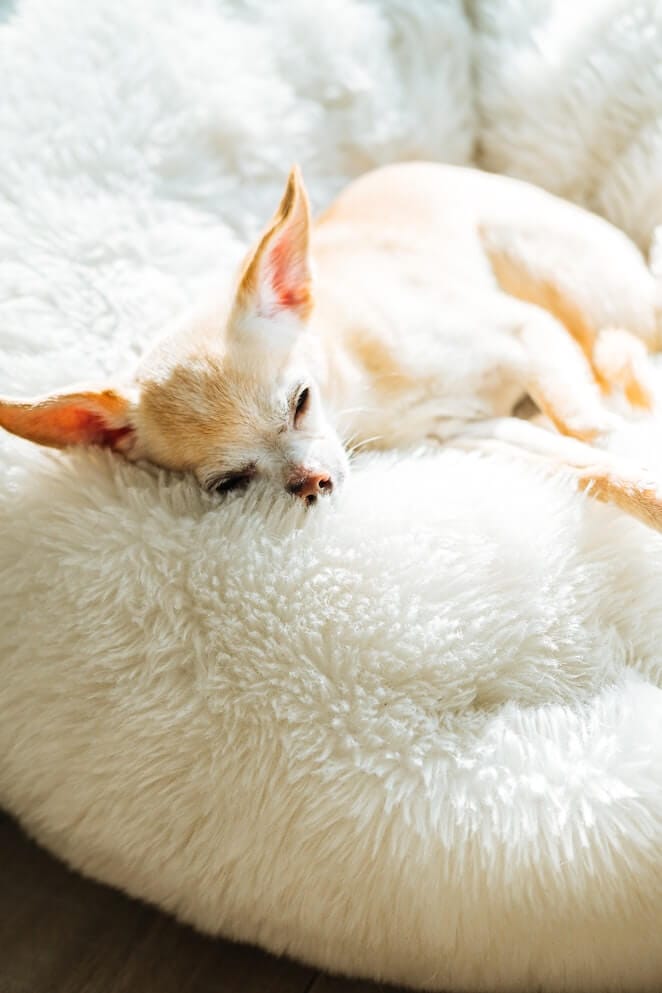
If your dog gets excited when they see you, they may start to pee.
This is called excitement urination, and it’s usually seen in young puppies.
As your dog matures, they should outgrow this behavior.
If not, there are a few things you can do to help them stop, like teaching them to “sit” or “stay” before you greet them.
3. Behavioral Issue: Submissive Urination
Submissive urination is when your dog pees out of fear or submission.
It’s often seen in dogs that are afraid of being scolded or punished.
If your dog is submissive, you’ll want to avoid using punishment as a training method.
Instead, focus on positive reinforcement, such as treats or praise.
4. Anxiety or Stress
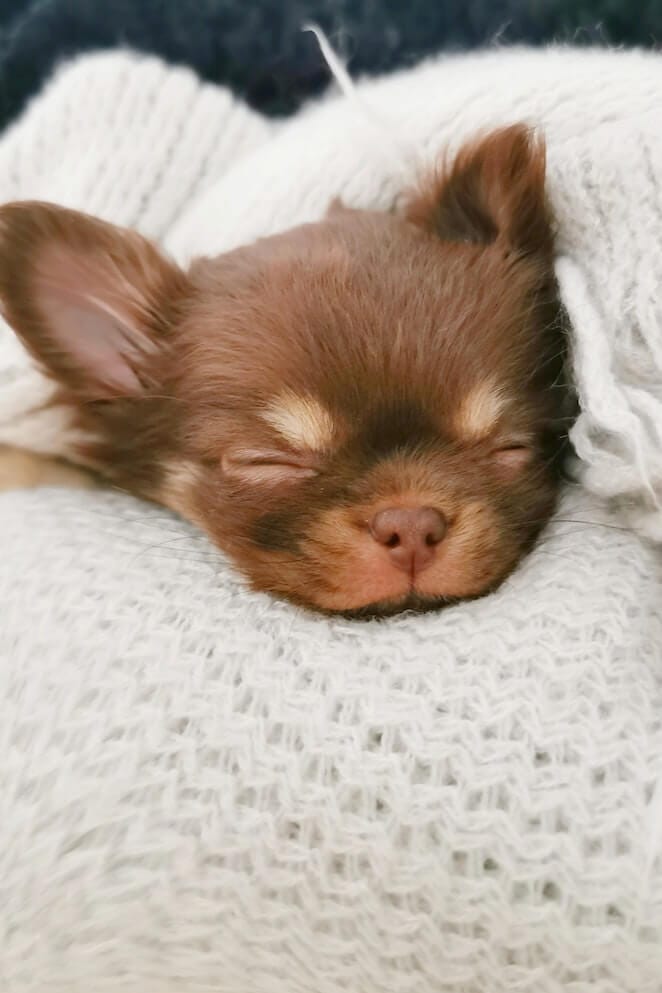
Anxiety and stress can also cause your dog to pee in their sleep.
If your dog is anxious, they may pace or pant excessively, which can lead to urination.
If your dog is stressed, they may express their glands, which also causes urination.
There are a number of things you can do to help an anxious or stressed dog, including providing them with a safe space (such as a crate), using calming pheromones, and giving them regular exercise.
5. Old Age
As dogs age, they may start to experience incontinence.
This is caused by a weakening of the muscles that control urination.
If your senior dog is suddenly peeing in their sleep, it’s important to take them to the vet to rule out any underlying medical conditions.
There are also a few things you can do to help an elderly dog with incontinence, such as changing their diet and providing them with easy access to the outdoors.
If you’re concerned about your dog’s sleep habits, talk to your veterinarian.
They can help you figure out the cause and create a treatment plan.
How to stop your dog from peeing in sleep?
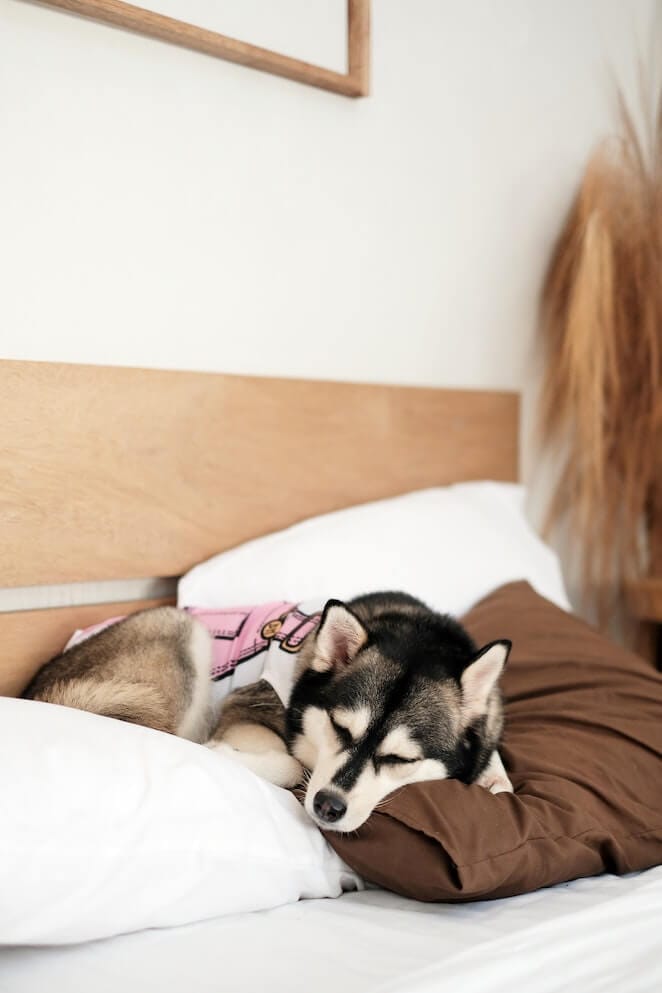
It’s not uncommon for dogs to urinate while they’re sleeping. In fact, it’s actually pretty normal behavior.
However, if your dog is urinating more frequently than usual or if they seem to be in distress while doing so, it could be a sign of a medical condition and you should take them to the vet.
There are a few things you can do to help your dog if they’re urinating in their sleep:
1. Make sure they have access to plenty of fresh water during the day. This will help prevent dehydration, which can contribute to urinary incontinence.
2. Take them out for frequent potty breaks during the day so they don’t have to hold it for long periods of time.
3. Feed them a high-quality diet that’s rich in fiber to help keep their digestive system regular.
4. Consider using an incontinence product such as a belly band or doggie diaper if your dog is having persistent accidents.
5. Talk to your vet about medication options if your dog’s incontinence is caused by a medical condition.
Conclusion
While it’s normal for dogs to urinate while they’re sleeping, if your dog is doing it more frequently than usual or if they seem to be in distress, it could be a sign of a medical condition.
Talk to your vet to rule out any underlying health problems and to find the best way to help your dog.
Sometimes if the conditions worsen, dogs may also pee in the house which may lead to other problems. You can check out the hacks to stop your dog from peeing in the house permanently.
There are a few things you can do to help, such as providing access to fresh water, taking them out for frequent potty breaks, and feeding them a high-quality diet.
You may also need to use an incontinence product or medication if your dog’s incontinence is caused by a medical condition.
- 7 Dog Breeds With Webbed Feet And Why Do They Have Them - July 19, 2023
- 10 Best Fish For Small Tanks That Make Perfect Pets - July 18, 2023
- How to Breed Guinea Pigs: A Detailed Guide - July 17, 2023


GIPHY App Key not set. Please check settings